Navigating the complexities of broken lease conditions can be daunting, but understanding your rights and responsibilities can make the process smoother. Whether you're facing unexpected life changes or financial struggles, knowing how to approach your landlord is crucial. In this article, we'll explore effective strategies and tips to communicate your situation with empathy while protecting your interests. So, let's dive in and empower you with the knowledge you need to handle busted lease agreements with confidence!
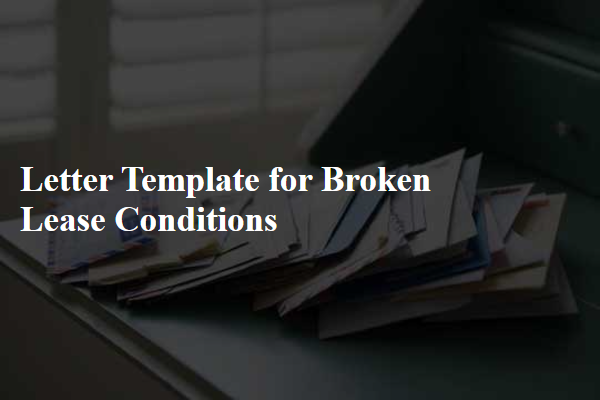
Contact Information
In situations involving broken lease conditions, tenants should carefully document relevant contact information to facilitate communication with landlords or property management companies. Essential details include the tenant's full name, lease agreement number, and current address. The landlord's or property management's name, office address, and phone number should also be noted. Additionally, record the email addresses for formal correspondence and any specific representatives involved in the lease agreement. Detailing these contact points ensures clarity and expedites the resolution process concerning the lease disputes or condition violations.
Lease Agreement Details
Broken lease conditions can lead to significant financial implications for tenants and landlords in real estate agreements. A broken lease often arises when a tenant vacates the rental property, such as an apartment in Los Angeles, before the lease term's end, which typically lasts 12 months. Specific conditions, such as the requirement for a 30-day notice prior to moving out and potential penalties, can impact the leasing process. Potential penalties may include losing a security deposit amounting to one month's rent or incurring additional fees, often ranging from 1-2 months of rent. Communication of broken lease terms must adhere to local laws, such as those in California's Civil Code 1946.2 regarding rental agreements. It is essential for tenants to understand their rights and responsibilities, including complex terms like "lease break fees" and "mitigation of damages," to navigate potential disputes effectively.
Description of Broken Condition
A broken lease condition refers to a violation of the terms outlined in a rental agreement, often resulting in financial penalties or legal consequences. An example includes failure to pay rent on time, which, according to state regulations, can lead to eviction proceedings if not rectified within a grace period of five days. Another common broken condition is significant property damage, which may require repairs beyond normal wear and tear, potentially costing hundreds to thousands of dollars. Non-compliance with specific clauses like unauthorized pets or subletting without permission can also constitute a broken lease. In regions such as California, laws protect tenants but also stipulate that landlords may retain security deposits or pursue further legal action for significant infractions.
Consequences and Penalties
Breaking a lease agreement can lead to significant consequences and penalties for tenants, primarily financial. Most lease contracts stipulate an early termination fee, often equivalent to one to two months' rent, which can vary based on state laws and specific terms outlined in the lease. This fee may be in addition to the obligation to cover rent until a new tenant is found, a process that could span weeks or months in competitive rental markets such as San Francisco or New York City. Furthermore, landlords may retain security deposits, which typically amount to one month's rent, if the lease is broken prematurely. Additionally, tenants might face potential legal action if landlords seek damages for breach of contract, leading to costly legal fees or collection assessments. Lastly, a broken lease can negatively impact credit scores and rental history references, complicating future housing applications in areas like Los Angeles or Chicago.
Next Steps and Resolution Plan
A broken lease agreement often poses challenges for both landlords and tenants, necessitating a structured resolution plan. In residential settings, tenants may face financial liabilities, including remaining rent due until the lease expiration date, often determined by state laws. For instance, in New York, the tenant might be responsible for the rent until the landlord finds a new tenant or the lease term ends. The first step involves communication, where tenants should promptly inform landlords about their intention to vacate, allowing for a discussion of mutual interests. Moreover, landlords may initiate property showings as soon as notice is received to minimize vacancy duration, thereby reducing potential financial losses. In cases of disagreements, mediation through housing authorities can serve as a viable option for negotiating terms. Proper documentation and adherence to local regulations throughout this process are crucial to preventing legal complications and ensuring a fair outcome for both parties.
Letter Template For Broken Lease Conditions Samples
Letter template of Informing Landlord About Lease Break for Family Emergency
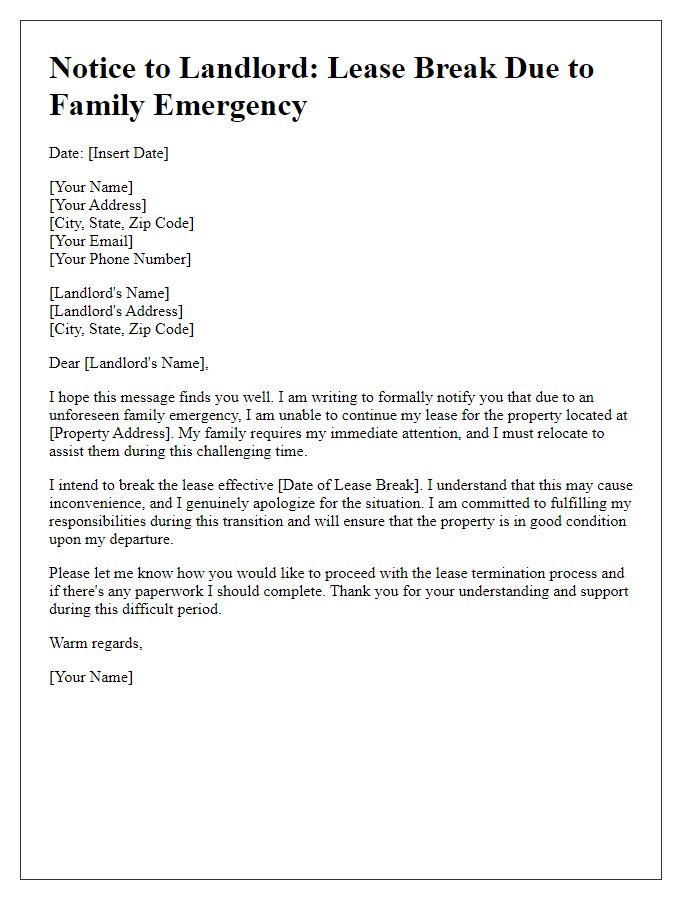
Letter template of Lease Termination Notification Due to Property Issues
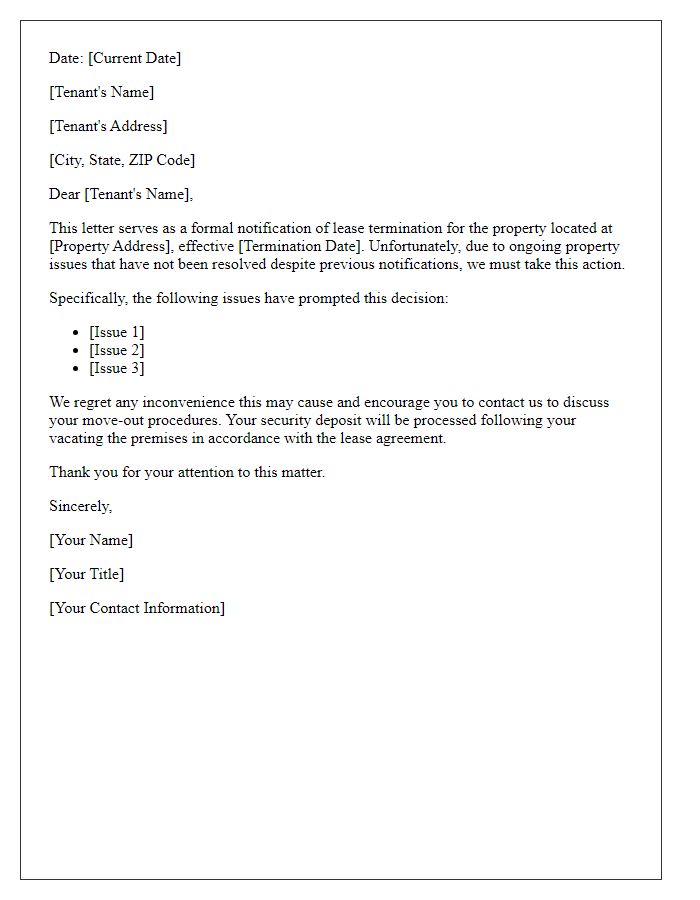

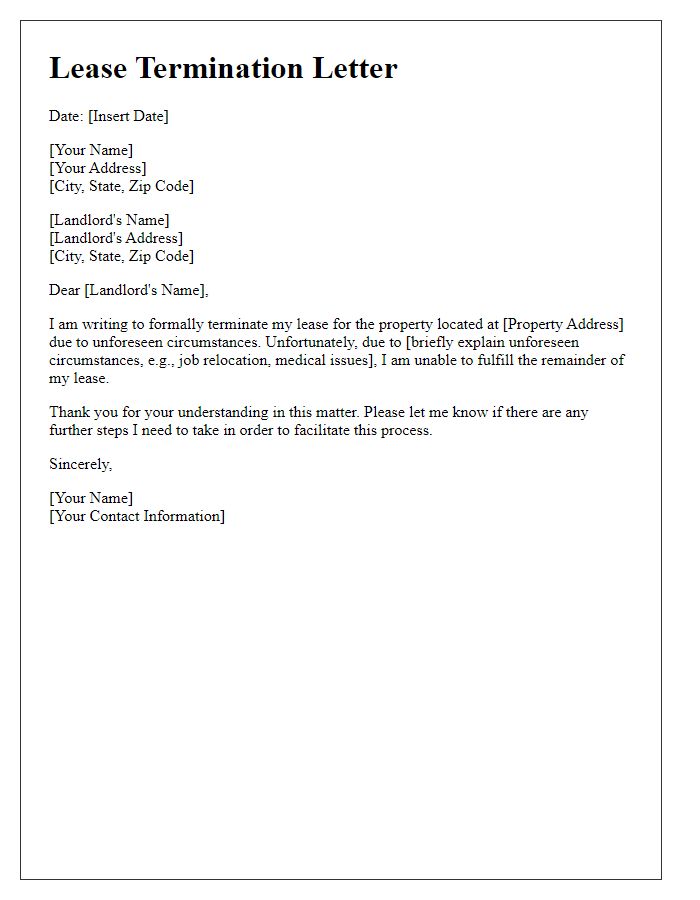
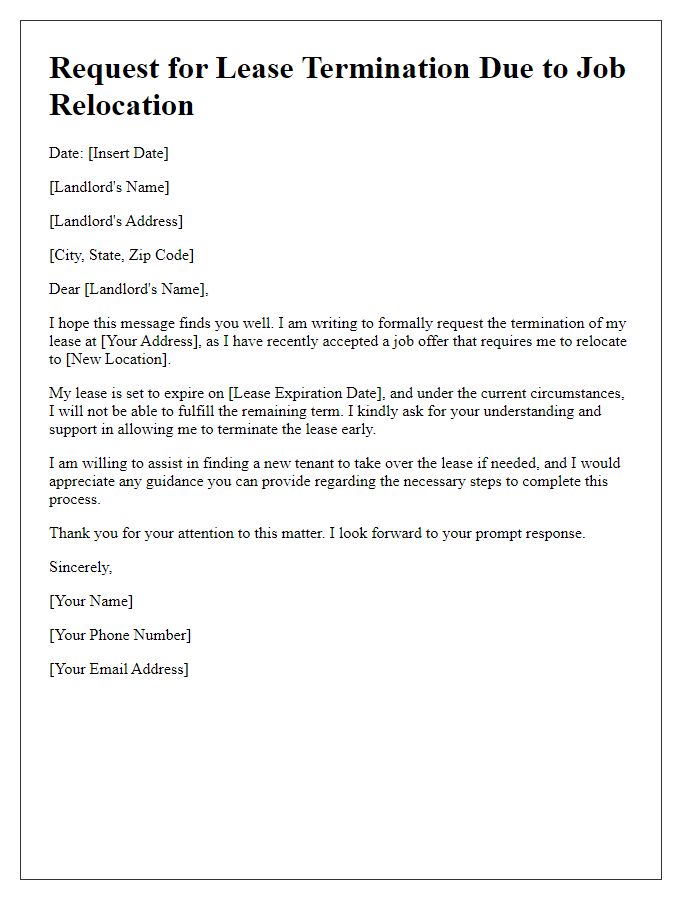
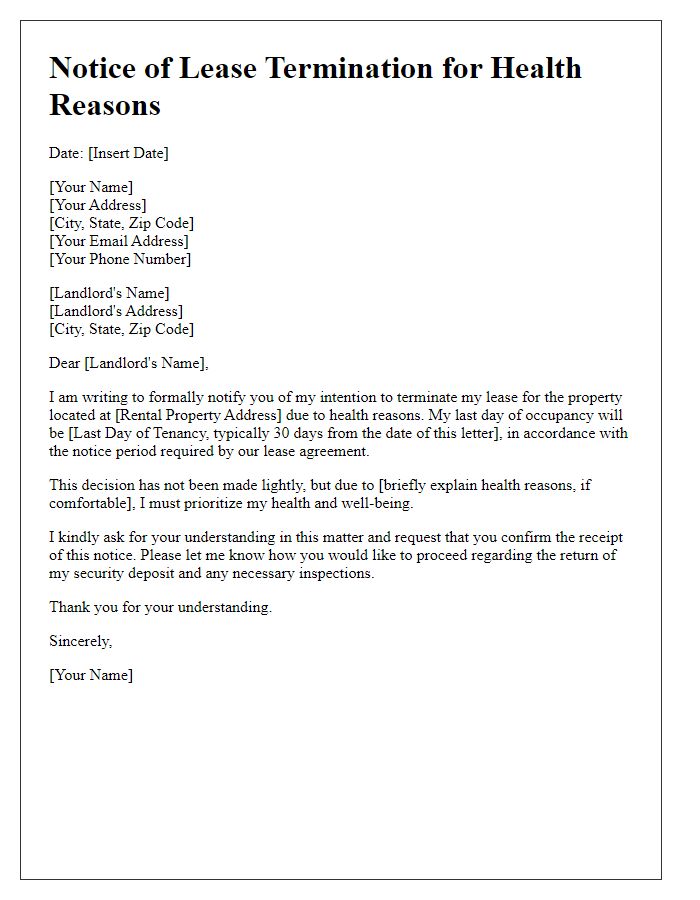
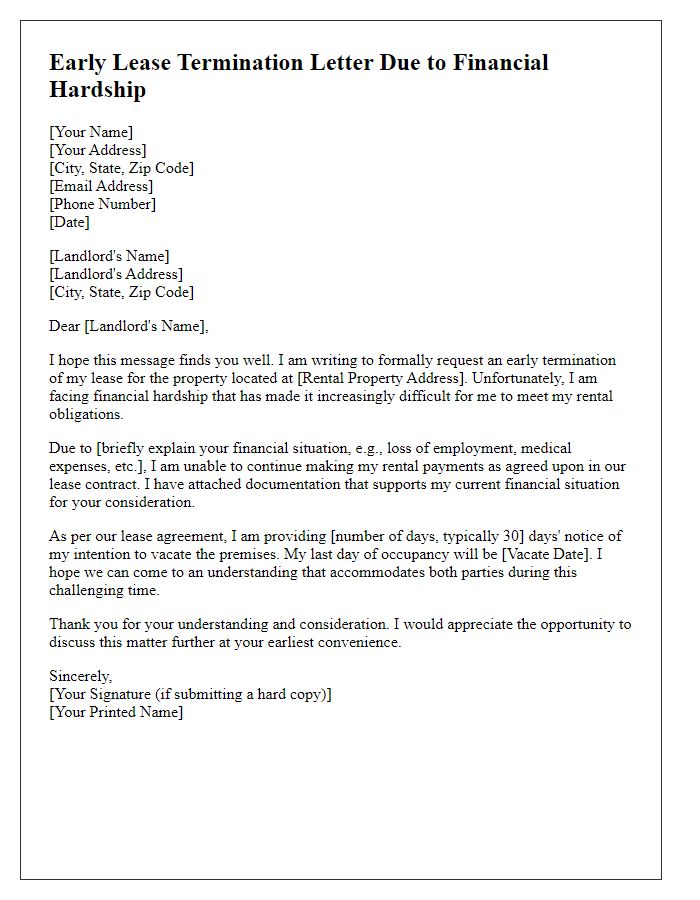
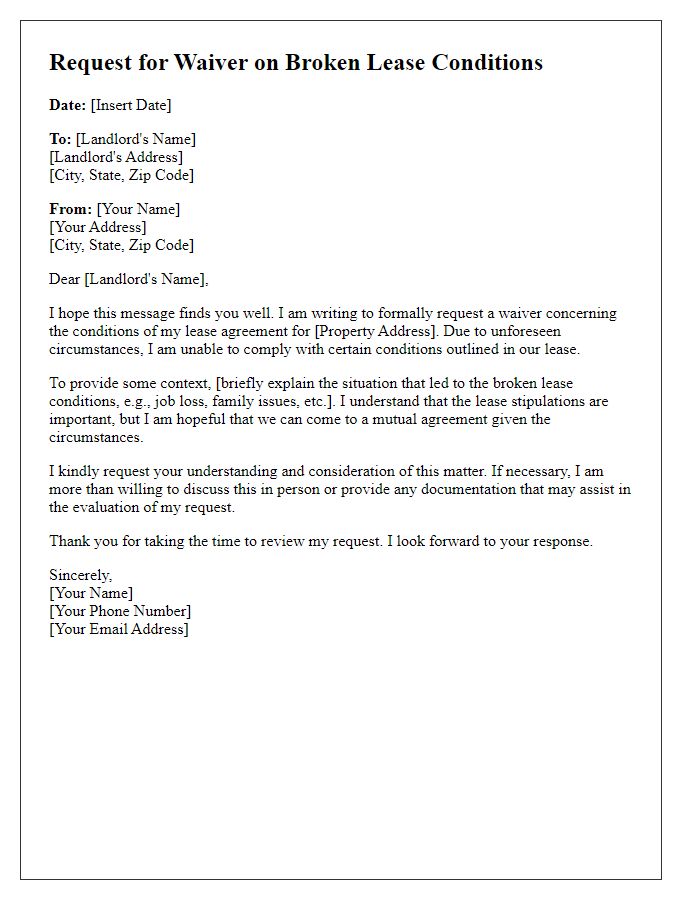
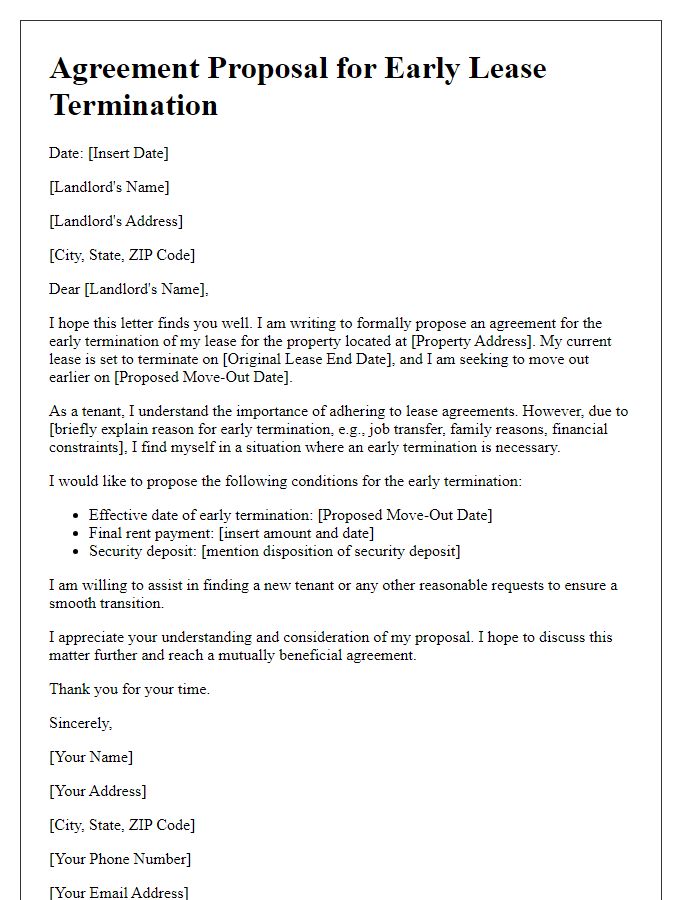
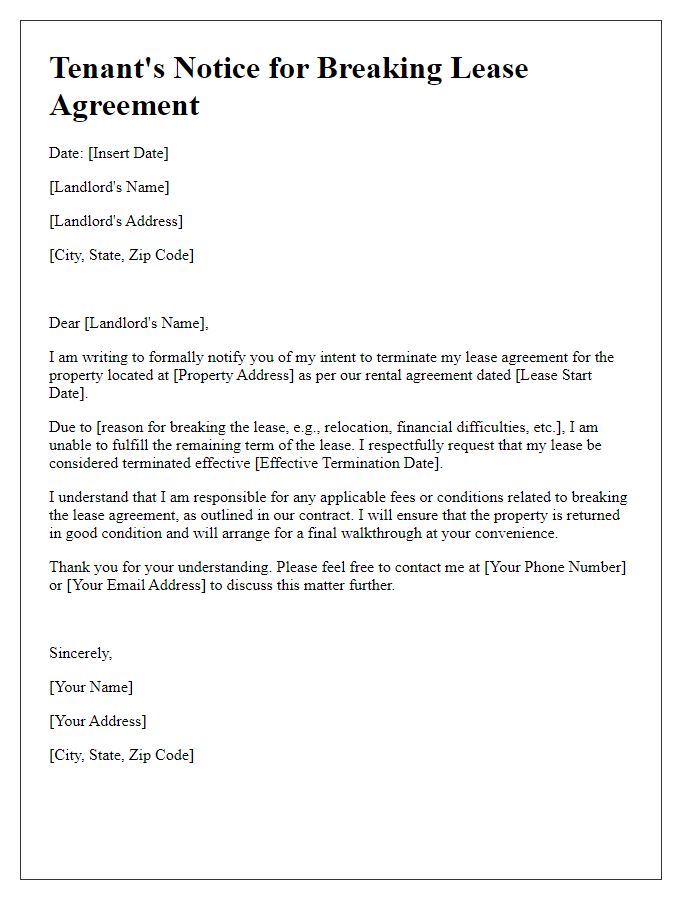
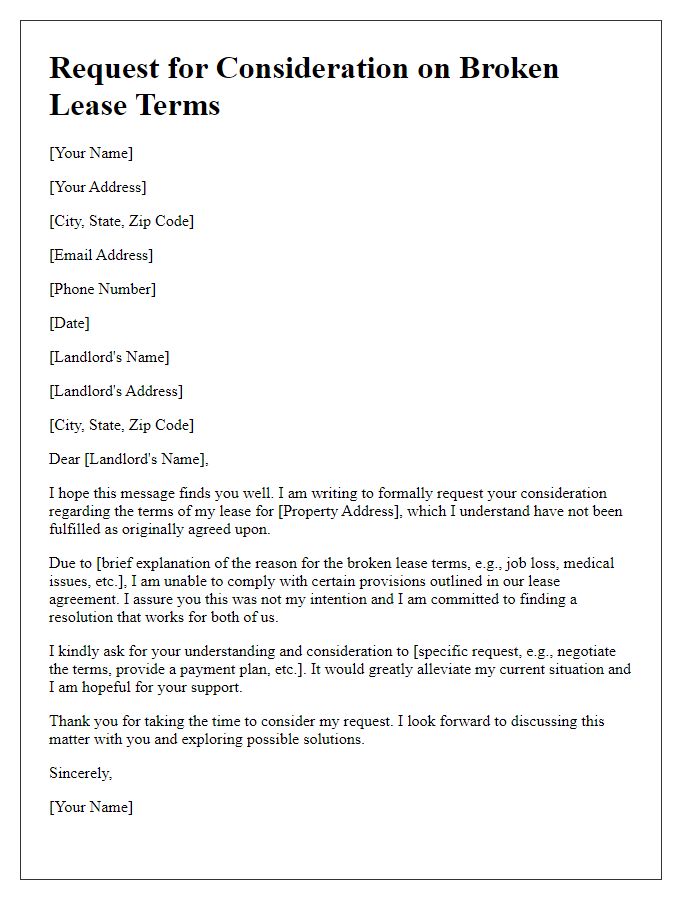


Comments